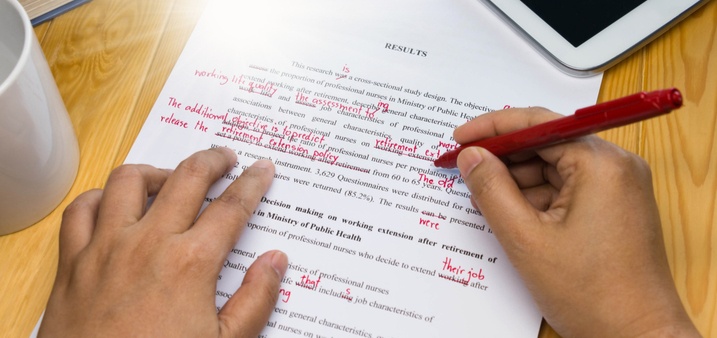I have been fortunate in my career to work both inside and outside the legal profession. As such, I’m well aware that creating errors in documents is never a good thing. I can tell you without a doubt, however, that it is a way bigger deal in the legal profession than anywhere else.
The reasons for this are numerous. First and foremost, many clients pay their lawyers hundreds of dollars per hour to perform legal work. Given that tremendous expense, clients can be easily put off by simple mistakes. It can make them question their lawyer’s intelligence, watchfulness, and concern for the matter at hand. Once that confidence begins to erode, it can be hard to maintain a good working relationship.
Additionally, many legal documents end up in the hands of judges who are busier on any given day than you and I can even imagine. In addition to the great deal of deference and respect that is owed to the court, it can simply be annoying for a judge to have to read sloppy writing all day. Right or wrong, that annoyance can lead a judge to look upon your client’s side of the case with a degree of disdain. That’s not good for anyone.
So, how do you overcome these mistakes? We’ve compiled a list of common errors made by lawyers as well as tips for avoiding them. Do you have additional tips to share with our readers? If so, please leave them in the comments section, below.
#1: The ever-infuriating pleading numbers
Those of you with a litigation practice already know what I’m talking about. When you submit a brief to the court, you are supposed to do so on pleading paper – i.e., pages that are numbered along the left-hand margin. You are then supposed to line up your text with those numbers. This is so the judge can refer to specific points in your filing (e.g., Page 3, Line 16). There are two absolutely maddening things that can happen with pleading paper.
First, you can experience the phenomenon where you properly set up page numbers on your cover page, but they do not appear on subsequent pages. In the latest versions of Word, this likely means that your program is defaulting to that setting. A quick way to remedy this is to double-click in a header or footer space. That will bring up a menu called “header and footer tools.” Under the “Design” tab, check to make sure that the box that reads “Different First Page” is checked. Uncheck the box and see if that solves the problem. If not, keep reading for additional solutions from the Legal Office Guru.
The other common problem with pleading paper is that your text lines don’t match up with the numbers. We could walk you through all the possible solutions, but this 11-minute YouTube video will show you everything you ever needed to know about fixing this exasperating problem.
#2: Watch out for commonly misused words
We all have those words that we never know exactly how to use correctly. Maybe for you, it’s insure vs. ensure. For others, it might be the difference between endorse and indorse. Regardless (note, I did not say “irregardless”) the best thing you can do is look up these words to make sure you’re using them appropriately. If you’re like me, you may have to go to dictionary.com or a similar site 50 times before you remember which word you’re supposed to use. As you’re fuming at yourself during the process, just remember that your clients are paying you a lot of money to avoid these mistakes.
Read more: 14 commonly misused words in the legal industry>>
#3: Edit the old school way
We’re all interested in pursuing the paperless office. It’s a laudable goal. When it comes to editing, however, sometimes you still just need to do it the old school way – by getting out your red pen and marking up a hard copy. This is especially true when you’re editing complex material. The fact is that we’re all so used to staring at a screen all day every day that we can get somewhat complacent when it comes to editing on-screen. By forcing yourself to put pen to paper, you will likely correct many more mistakes than if you did all the editing on the computer.
Download now: The editing checklist for legal documents>>
#4: You can fix some mistakes after the fact
So, what happens if you submit a final draft to the court, only to discover a damaging typographical error later? In many cases, all is not lost. Indeed, Federal Rule of Civil Procedure 15 allows parties to amend any pleading once “as a matter of course” within 21 days of its filing. If you’re going to do that, however, it’s a good idea to notify the court and your opposing counsel as to exactly what you’re fixing.
Of course, there are as many potential mistakes as there are lawyers. The important thing is to remain diligent about editing, remember your audiences, and always submit your best work.









